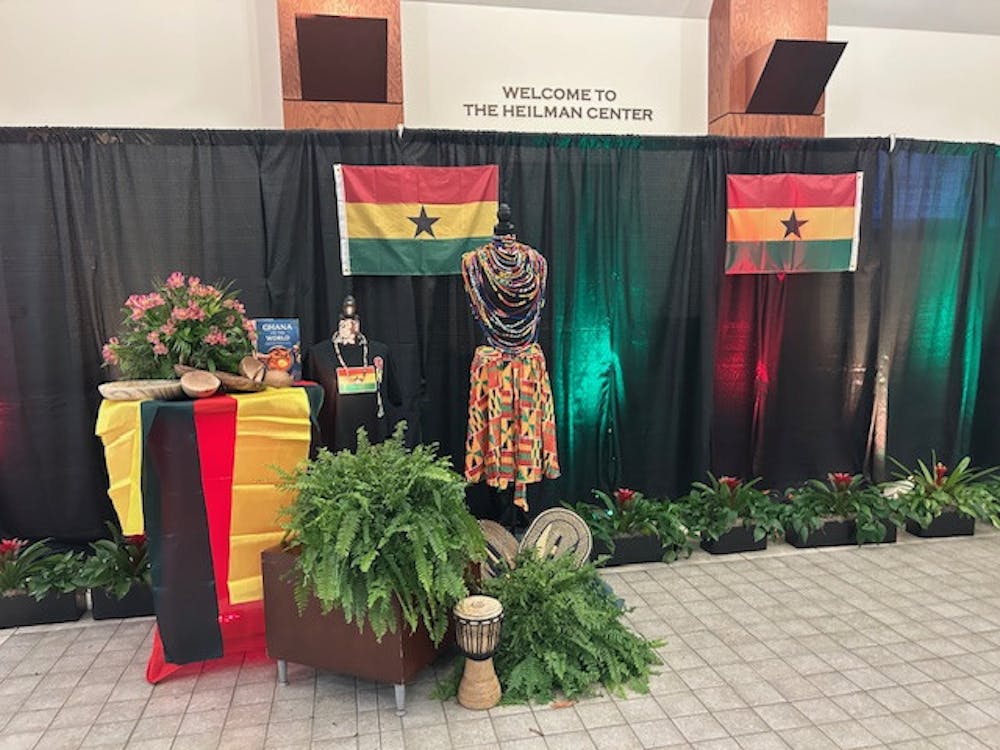The 2014-15 Tucker-Boatwright Festival of Literature and the Arts will feature the Parking Lot Project, where a University of Richmond campus parking lot will be transformed and used for the purpose of collaborative artwork.
About 21 parking spaces in C-lot will be excavated and redeveloped as art canvases. The excavated spaces will be used as green spaces in an alternating pattern with functional parking spaces.
The Tucker-Boatwright Festival rotates among various selected academic departments in the School of Arts & Sciences every year, which allows departments to bring scholars, artists and performers to campus. During the whole year, the art and art history department will host the festival.
The 2014-15 Tucker-Boatwright Festival is focused on the theme of landscape and land use. Landscapes deal with aesthetics and issues about how land is visually engaged, said Erling Sjovold, project designer and co-professor of both courses. The parking lot is a space that is virtually invisible being strongly embedded with cultural assumptions, most of which are utilitarian in nature, he said.
"Curiously it is an architectural space and it is one of the few types of spaces on this campus that isn't built or conformed to the aesthetic code of this gothic collegial architecture," Sjovold said. "It's interesting that we see through the parking lot of a campus that has a clearly coherent visual culture. It doesn't take much to interrupt that to generate a dialogue."
The department will offer courses in Art 279 in the fall and spring semesters that will focus on the Parking Lot Project. Students will use their artistic freedom to disrupt the parking lot's identity for critical and creative inquiry, Sjovold said.
"It is a course but it's a generative vehicle for a lot of parallel and collaborative programming," he said.
"At the same time, it is really creating space for independent research for these students. The project is most of all a creative inquiry into sustainability and a meditation on alternate land use values."
The University Museums are working with the art and art history department to help amplify the Tucker-Boatwright Festival, said Elizabeth Schlatter, deputy director and curator of exhibitions for University Museums.
Schlatter is the co-chair of the festival and curator of the spring 2015 exhibition "Anti Grand." Her mixed media exhibition will feature contemporary perspectives on landscapes through art. She will also co-teach with Sjovold in the fall. The exhibition and the Parking Lot Project are both part of this festival, Schlatter said.
"We will have local and international speakers. We will highlight some of the research done by faculty here and what some of the staff are doing here on campus, particularly facilities," she said.
Each student or pair of students will get a space. There will be a set procedure for excavating the spaces and how they will take care of the findings. But once open, the creative responses will be the student's to determine, Schlatter said.
Enjoy what you're reading?
Signup for our newsletter
"It's going be to one of those courses where it helps to have students who are creative, engaged, self-directed, and have a sense of initiative," she said. "We will give the students literature, and tools and opportunity for refection."
Schlatter said the subject matter -- landscape and land use -- allowed different departments such as geography and environment, biology, theatre and dance and the Bonner Center for Civic Engagement to find links to the project in one way or another.
"It could be pretty big if people want to take advantage of it and there's definitely still opportunity for people to engage if there's something that relates," she said.
Sjovold said the conversations he had with university members, even in the preliminary stages, were very stimulating.
"I have been really excited by the ideas so many other students and faculty have had," he said. "The parking lot as a site of interest does come up for a variety of reasons but in ways we don't often think about."
Being a part of academia, Sjovold said the project could be used as a medium for interactions to occur on a broader basis, which would give the university community the opportunity to share its intellectual and creative interests.
Contact reporter Sabrina Islam at sabrina.islam@richmond.edu
Support independent student media
You can make a tax-deductible donation by clicking the button below, which takes you to our secure PayPal account. The page is set up to receive contributions in whatever amount you designate. We look forward to using the money we raise to further our mission of providing honest and accurate information to students, faculty, staff, alumni and others in the general public.
Donate Now


